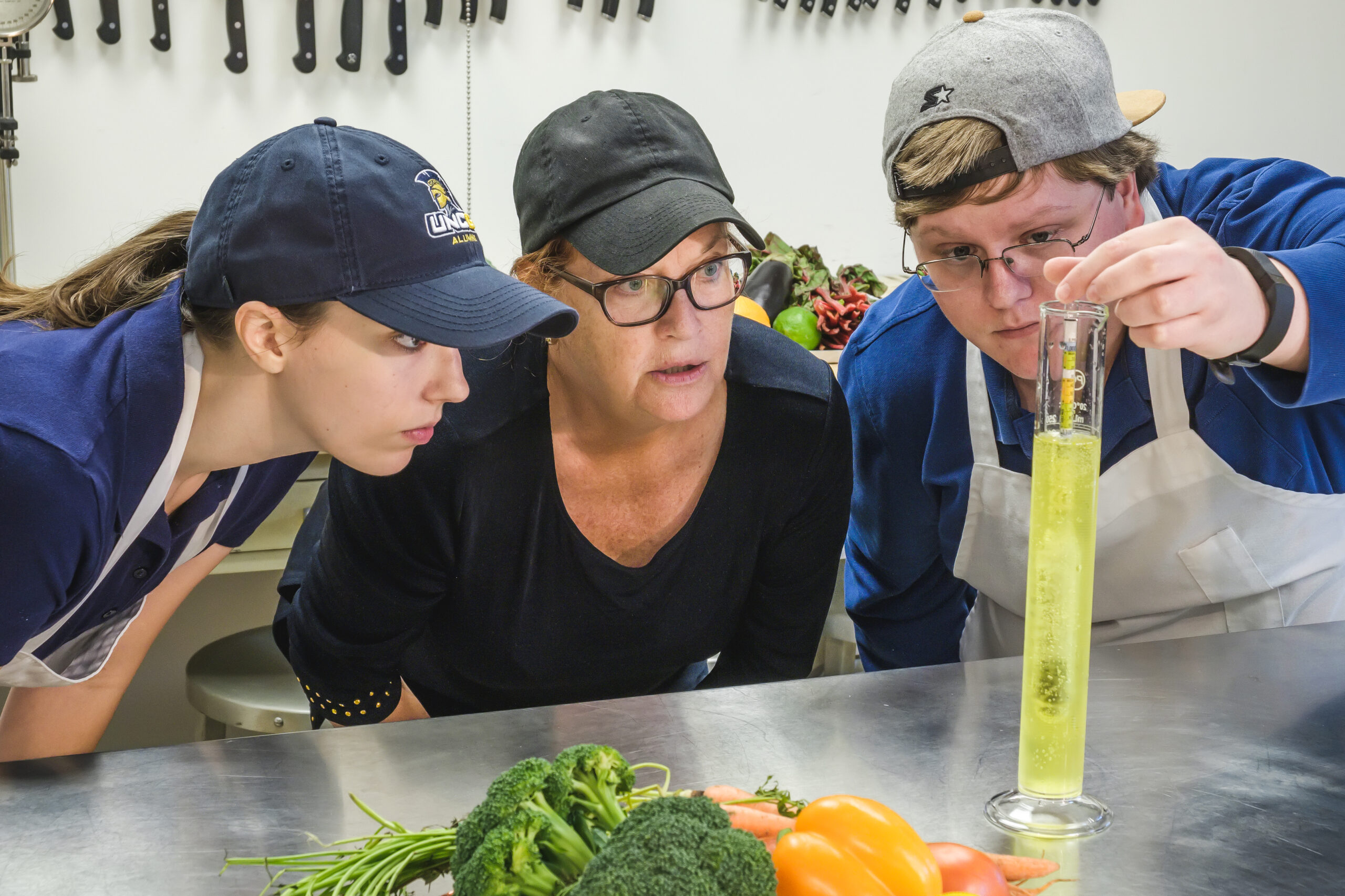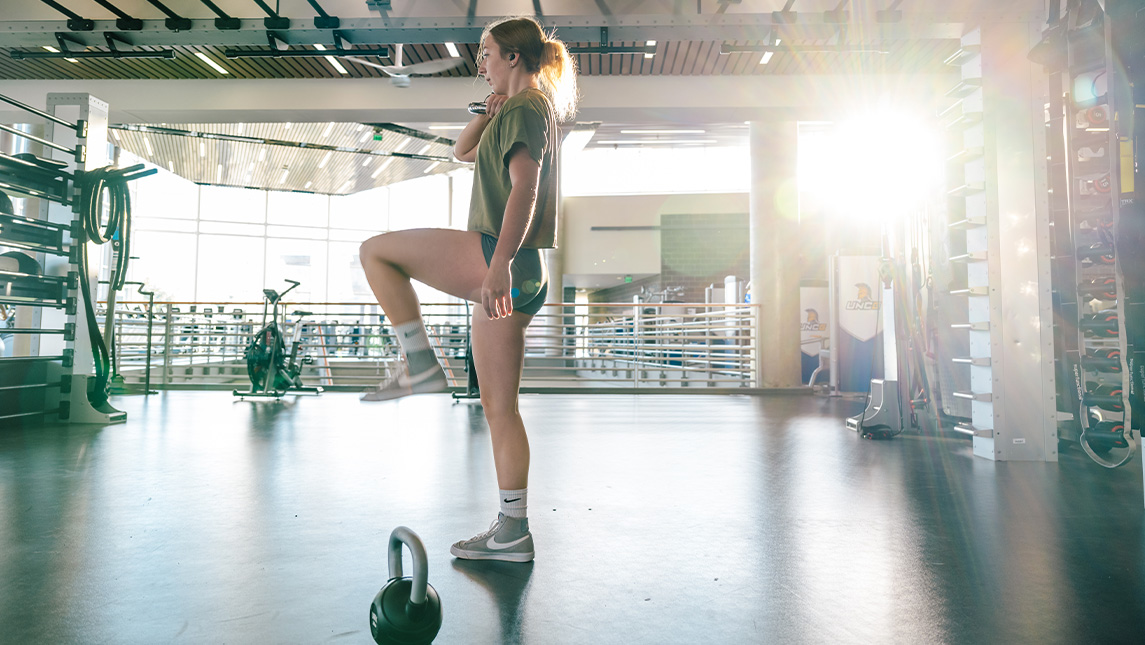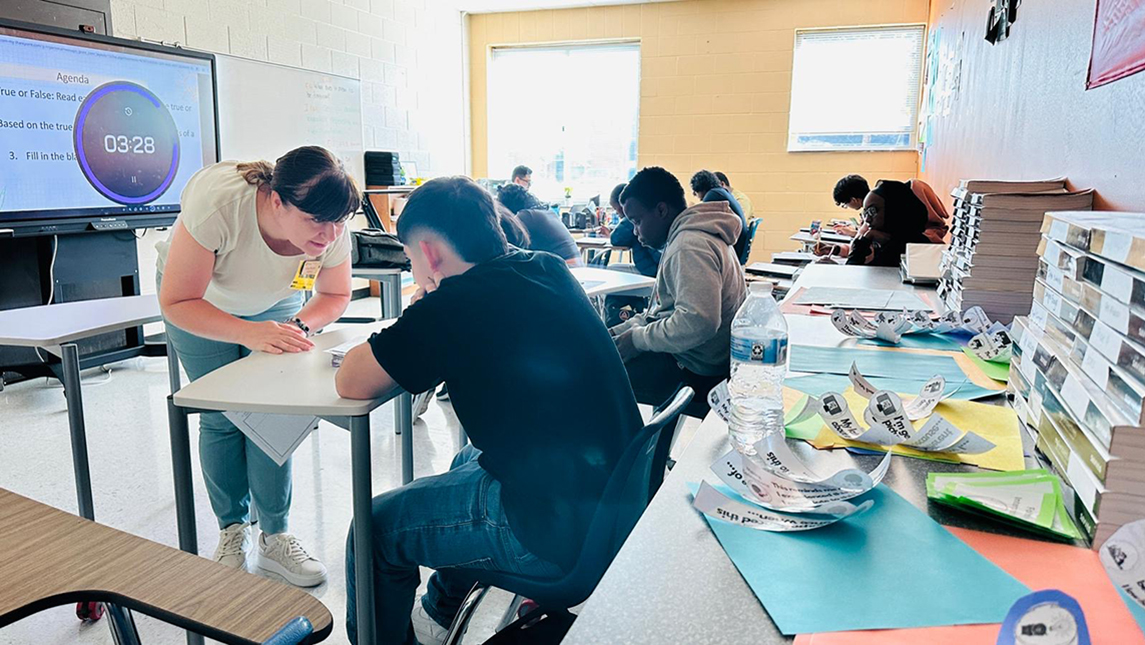January has become synonymous with a fresh start as many people set New Year’s resolutions around health, nutrition, and fitness. According to a 2022 YouGov poll, 37% of Americans had a goal or resolution they wanted to achieve in 2023 and 87% said that they were very or somewhat likely to keep it throughout the year. But only 8% of people hold onto that goal for one month.
Dr. Jaclyn Maher in the Department of Kinesiology and Maribel Romero San Juan ’22, in the Department of Nutrition offer up the best ways to set and keep healthy goals in the new year.
“It’s not a bad thing that there’s this one time of year for these goals because a lot of people are thinking about making those changes,” says Dr. Maher, an associate professor of kinesiology
GET MOVING
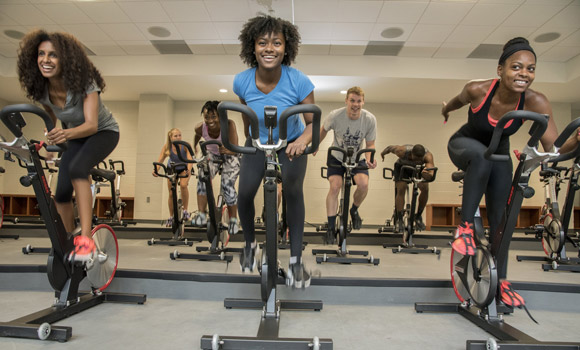
When it comes to fitness, the first step is simply deciding you want to get more active, and you don’t need permission from a physician (except if you have a chronic condition).
Dr. Maher says the beginning of the year is the opportune time to think about getting your activity level. She says only about 5% of adults meet the federal physical activity guidelines: 150 minutes of aerobic activity per week.
“Any cultural effort to increase physical activity is good,” says Maher. “We know that when people have support from important people around them, it can make a big difference in changing their behavior and sticking with it over time.”
SET REALISTIC GOALS
Maher advises to have goals that are both challenging and realistic.
“If you’re a person who hasn’t done much physical activity in the past, it’s unrealistic to set a goal where you’re going from doing practically nothing to two and half hours of physical activity per week,” says Maher. “Meeting the physical activity guidelines is worth doing, but it’s important to think about small, more manageable steps to take in between where you’re starting and where you want to end up.”
Maher suggests starting with 10 minutes of physical activity and building on that time as you go forward.
“You want to be focused on your long-term goal, but also evaluate your progress and what’s working and what’s not working,” she says. “There will be setbacks, and that’s a normal part of the process.”
MAKE A DETAILED PLAN

Don’t just tell yourself you’re going to be active for 10 minutes during the day, Maher says. You should come up with a specific plan about what you’re going to do and how you are going to do it.
“Look at your schedule and say, ‘I’m going to do a 10-minute walk at 3:00 today by myself around the soccer fields on campus,’” she says. “When you encounter that context, the time of day, the place that you are at, you’ve already made a plan in your mind about how you’re going to respond.”
The physical activity guidelines don’t focus on frequency either – Maher says it’s important to figure out what works for you to get the 150 minutes in weekly.
“For some people, it might be finding time every day to be active for 20 minutes, and for others it could be to carve out longer stretches of time on specific days or on the weekends,” she says. “Any movement is better than none.”
FORM HABITS
The more you develop plans around certain contexts (time of day, location), the more you can tie the behavior that you want to change to those specific cues within your environment, according to Maher.
“In psychology literature, habits are automatic links that we have between cues in your environment and a behavioral response,” she says. “So, something like seeing your exercise clothes laid out on your bed when you get home from work can be a cue to go for a walk at the end of the work day. The more you make activity habitual or automatic, the easier it can become.”
Maher says research shows it takes the average person somewhere between two to three months to form a consistent habit.
“There’s a misconception about how long it takes to make something a habit,” says Maher. “It might take you a while and you’ll have setbacks, but the important thing to really try to get right back at it.”
UNCG has a variety of resources when it comes to fitness, including the Leonard J. Kaplan Center for Wellness, which features group classes, a Natatorium, sauna, Zen Zone, nap pods, and more.
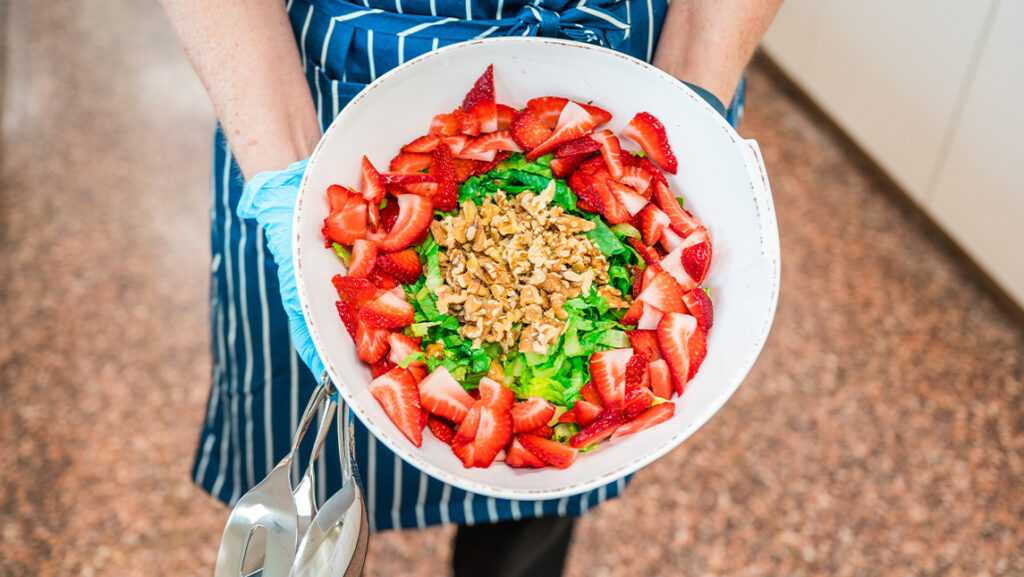
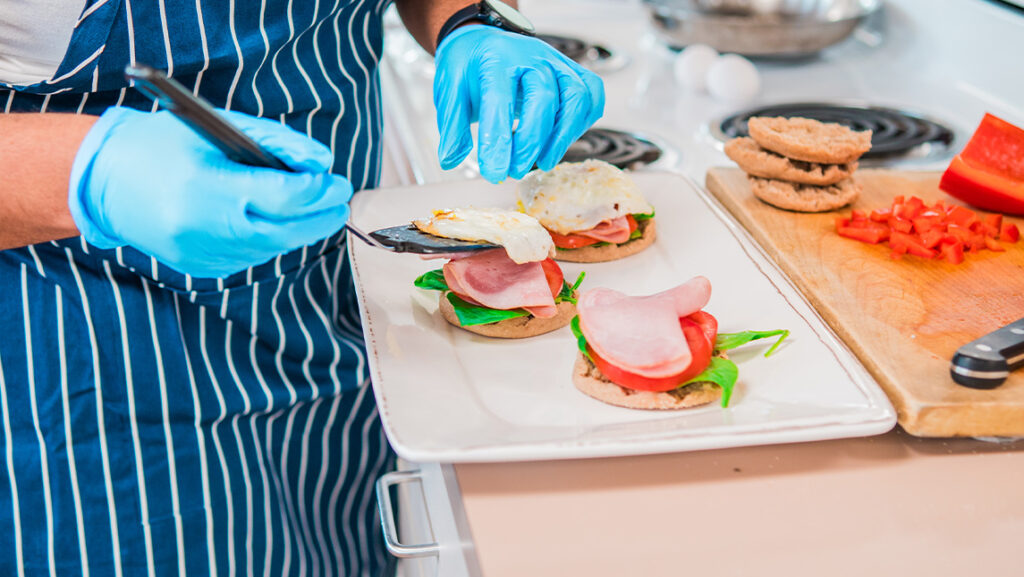
NEW YEAR, NEW DIET?
While people set fitness goals, they also work to set nutrition goals as well. Like with fitness, Maribel Romero San Juan, a UNCG nutrition graduate student and registered dietitian, says the new year is a good time to get motivated – but don’t let that restrict you.
“I hope that anyone who gets the motivation to start a new, healthier habit, can do so at any time of the year,” says Romero San Juan, who also earned a bachelor of science in nutrition and post-baccalaureate certificate in dietetic internship from UNCG. “It’s possible for the body to want to go slower in the winter months, and so if that’s the case, I would tell that person to not feel discouraged and embrace what feels best for them.”
POSITIVE EATING
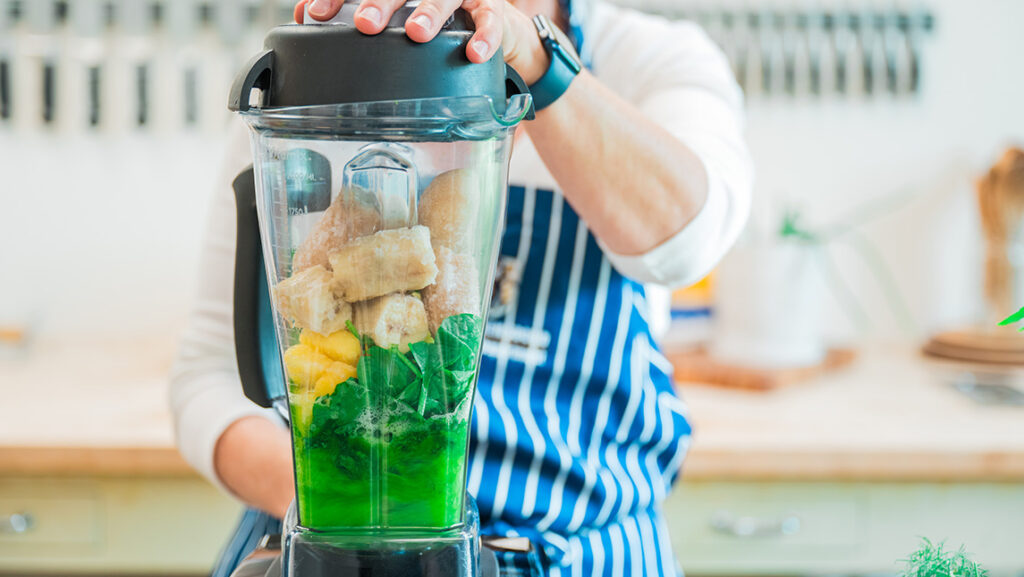
Romero San Juan says people should get away from the idea of dieting and focus on “positive eating.”
“Slowly, but surely, incorporate more fruits and vegetables into your meals and use more spices and herbs to season,” she says. “Don’t forget about beans and whole grains. We do not have to immediately eat only the “good” things because that’s not how sustainable habits are formed. Try adding one or two items you don’t usually have every week and explore as much as you’d like.”
Many people think healthier eating means taking away foods such as sweets, soft drinks, or fast food. But Romero San Juan, says it’s about adding, not subtracting.
“When you focus on what you can’t have, you tend to want it more. But when you focus on what you want to add, such as water, vegetables, or fruits, you switch your perspective and tend to have a better relationship with food,” she says. “Eventually, you start to develop habits you may not have had before and realize you’re getting closer to your goals.”
UNCG Is commitTed to helping students find their well-being.
Explore the University’s eight dimensions of wellness, along with resources for students, here.
GET ROMANTIC
If you’ve been on social media, “romanticizing your life” has become a popular trend. Some see it as a negative, moving away from reality. Others, like Romero San Juan, say it can be used for good.
“People tend to forget that food is often enjoyed most when it’s seen as something beautiful and not a chore,” she says. “I would encourage others to be more present when preparing their food. Consider how colorful you can make it with more vegetables, herbs, and fruits. Take the extra minute to be your own personal chef. It can lead you to make choices that can be healthier and tastier.”
For those looking to make a change in nutrition, UNCG offers nutrition counseling for faculty and staff along with a healthy recipe guide designed by the Department of Nutrition Dietetic Interns.
Story by Avery Craine Powell, University Communications
Photography by Sean Norona, University Communications
